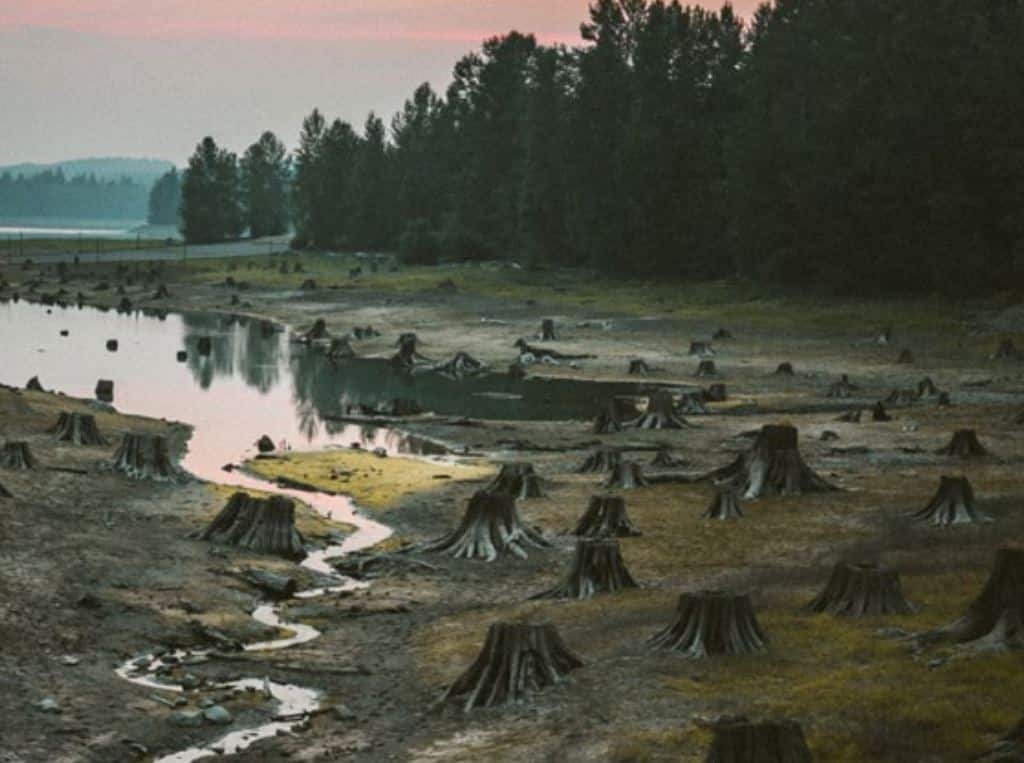States and counties across the U.S. are looking at public forests for carbon credits hoping to generate millions of dollars.
The State of Michigan and five counties in Wisconsin set the precedence.
Michigan had inked agreements with Blue Source, LLC, a carbon development firm. This partnership aims to produce carbon credits starting later this year or in 2023.
The agreement also creates projects covering about 800,000 acres of forest. This is 3x bigger than the current public forestland producing carbon credits in the U.S.
The State of Michigan expects to generate 10 million credits with the projects over the next decade. This amount corresponds to the emissions of over 2 million cars or a big coal power plant in a year.
US Forests Enrolling Dubious Carbon Credits
The promise of credit generation of those carbon projects is huge. But reviews and interviews by the Bloomberg Green team revealed that the case seems to be not likely.
Overseers of the U.S. forests involved in the projects don’t expect changes in how they’re managing the public land. Rather, the promised payments would be capitalizing on the same forest practices.
Responses from interviewed state and county officials share the same message. That’s the carbon projects won’t impact their forest management practices and harvest.
As per Jeremy Koslowski, forest administrator for Rusk County,
“We’ve already done the legwork to get where we need to be.”
Also, another state official, Scott Whitcomb, said that the carbon project is consistent with their timber harvest strategies. He noted,
“We’re not expecting to see a change or difference in management from the working forest model we have now.”
Officials’ statements bring light to the “additionality” that these carbon credits will generate.
Meanwhile, the market for carbon credits had reached past $1 billion for the first time. But the questionable U.S. forest carbon offsets have cast doubt on the market’s future.
Analysts suggest that the carbon market can surge as high as $100 billion or more. But it may crash if there are no big improvements made in ensuring the quality of carbon credits.
Some specific cases raise key questions about the quality of carbon credits generated by U.S. forests.
The case of Michigan’s Pigeon River County state forest
Michigan’s Pigeon River County project covering 105,000 acres claims about 1 million carbon credits over the next decade. The basis of this credit generation is on expectations that harvests will increase.
The project claims that timber harvest will triple in the following decade (from 20,000 to 55,000 cords) a year.
But that will only be the case if the state has plans to triple its harvests. Officials said there weren’t any such plans.
Yet, Blue Source countered that the carbon projects they signed with the State of Michigan meet the highest quality standards. The carbon project development firm will earn about 10% – 33% of the project’s proceeds.
The firm said that their US forest carbon projects heed the rules set up by the American Carbon Registry. It’s one of the carbon registries that make protocols for carbon projects.
Meanwhile, DTE Energy, a Detroit-based energy company, agreed to buy $10 million worth of credits from the project.
The firm plans to sell carbon credits from this U.S. forest project to its climate-conscious customers who want to pay extra to cut emissions. DTE seeks to add about $48 to $192 per year to their rate for those wanting to offset their natural gas consumption.
As per the American Carbon Registry’s point of view, the executive director said that,
“…Harvest plans frequently change and the carbon project now provides legal certainty, which was absent before, that the project area will increase its carbon stocks over time…”
Michigan is also working with Blue Source to develop a second carbon project on another 125,000 acres of public forest. Other states seem to follow suit.
The case of Wisconsin counties
Blue Source is also partnering with the State of Wisconsin. The state counties own some 2.4 million acres of forests, which is over 40% of all county-owned forests in the U.S.
Five counties in Wisconsin have signed carbon project contracts with Blue Source. The firm said that these projects will create a lot of carbon credits.
Both parties to the agreement believe the projects will help preserve trees. There’ll be highly motivated to cut fewer trees to gain more carbon credits.
But same with the case of Michigan, forest administrators in five counties said those projects won’t affect their harvests. They’re also not anticipating any changes to their timber management.
Other officials in Wisconsin say the carbon payments will help lock in their current practices for decades to come.
And if carbon prices will rise high enough to rival timber values, it can encourage them to harvest less.
Blue Source and other carbon development firms are pitching officials who think they can get over $30 million out of carbon projects.
Still, the calculation of carbon credits that those US public forest projects will generate seems questionable.
As one county official said,
“It’s a little silly to pay us to do something that was already going to happen, which could allow someone to pollute somewhere else.”

